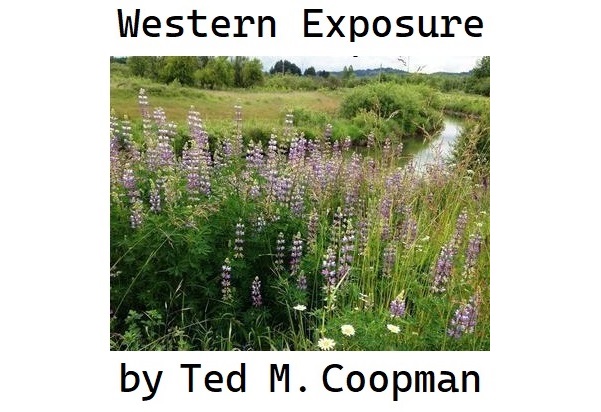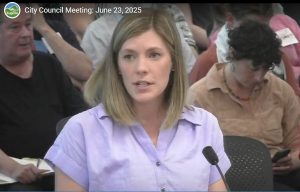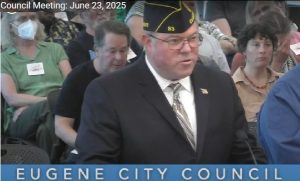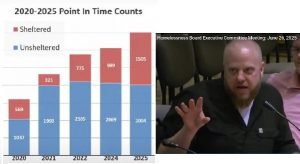Is Eugene a democracy? Part 2
6 min read
by Ted M. Coopman
Is Eugene a democracy? Technically, yes. Functionally, not so much. And that is on us.
In Part 1, I looked at how Eugene’s city councilors are facing unprecedented intrusions into local control from an increasing maternalistic state government. I also noted several recent unforced errors—from the city hall fiasco to the failed natural gas ban—and concluded: You get what you pay for. Our current Eugene government has a full-time professional city manager working for part-time amateurs, some clearly out of their depth.
Poor process, voter apathy, and a way forward
“That’s the most ridiculous thing I ever heard.” – Groucho Marx
Before I go off, an important caveat. The problems I describe are primarily structural constraints, which trap staff and management as much as the public. A vast majority of city staff and management are diligent public employees and concerned citizens. I have experienced some good process and outcomes, particularly with Public Works and Parks and Open Space.
The issues are how networks and systems—including professions—reinforce certain behaviors and constrain individuals’ actions. One aspect of the network effect is that our interpersonal and professional networks are highly predictive of how we behave. Compliance with the status quo is always easiest. Combined with the challenges of dealing with amateurs (public), it is easy to see how expediency drives a tendency to treat Eugene residents like annoying tenants to be placated instead of partners in collective governance.
The central flaw of policy process in Eugene is that, in most cases, public input is only considered before an actual plan is drafted. Once a plan is created and the public sees the details, “public process” reverts to explaining—and defending—the plan. Changes are rarely considered or implemented. For example, while the public may say they are concerned about climate change and want to reduce carbon emissions, how that policy is implemented is not open to discussion.
‘Listen,’ ignore, repeat
In practice, staff and management often see public input as an annoyance to be managed rather than a critical element in creating policy. The public not only provides diverse perspectives and information outside the scope of public professional’s experience, but it also signals if parties are concerned enough to challenge ordinances in court and ways to avoid costly and time-consuming appeals.
The city has “control issues” on public process, particularly on land use, and aggressively polices public comment venues and formats. Jefferson Westside Neighbors tried twice to get staff or planning commissioners to come in and talk to neighbors about their HB 2001 plan. They refused.
City management was concerned we wanted staff to defend their plan and be open to changes—they wanted to simply brief us on what they had already decided. That is not public process. The City Manager claimed that city managers and staff did not have an agenda and thus could not “defend” their plan because they somehow were not advocating for the plan they created and were recommending to council. Such a denial of agency is ridiculous and utterly implausible particularly when management vociferously defends their plans against any critique.
More people signed a petition against the Planning Commission’s staff-drafted HB 2001 implementation proposal than participated in their “award-winning” public outreach. Once the plan was released, not one element was changed based on public input. The initial council vote on the most consequential land use change in city history was a 4-4 deadlock and the mayor broke the tie in favor of staff’s plan. (Ultimately, some minor elements requested by councilors were changed.)
Although the city’s decision-making process was aligned with the state legislature’s vote on HB 2001—it passed by one single vote in overtime—we should not be making massive changes in public policy when there is only the bare minimum of support. It is little wonder why people disengage.
Low voter turnout is bad for democracy, but great for politics
Over 73% of Ward 7 residents did not vote in November’s election to choose their city councilor (3,683 voted out of 13,702). The race was decided by less than 600 votes.
Low turnout means candidates need to reach fewer people and with readily available data you can closely target individuals most likely to vote your way. Moreover, low engagement empowers special interest groups pushing narrow agendas. Unions, and advocates for housing, homelessness, the environment, transit, and social justice all have legitimate concerns and demands on public money and policy. But these demands can come at the cost of other equally worthy priorities.
Businesses and business organizations have money to contribute and financial incentives to shape policy. A little money goes a long way in a local campaign.
Combined, low turnout not only disenfranchises those who choose not to vote but also those who do vote who are not aligned with a faction. Outcomes are determined by the interests of those connected and engaged voters combined with the means to push their agenda, rather than by broad public support. In this scenario, power does not have to explain or convince the broader public of the efficacy of its intentions, it only must marshal a narrow slice of interests and allies to prevail.
The idea that “nothing changes so why vote” is an invitation to authoritarianism, or at least bad government. It is a self-reinforcing spiral of disappointment. Our forebears would laugh in our faces if we told them Eugene’s dysfunction was an overwhelming challenge. People in Ukraine are fighting and dying to be able to have their own government and elect their own leaders, so maybe quit whining, take a few minutes to get informed, and mail in a ballot? Just saying.
Chartering a new course
“What is to be done?”- Karl Marx
The recent recall of Ward 7 Councilor Claire Syrett and the subsequent election of her choice to replace herself points to insurmountable structural problems within local government. Without structural changes we simply can’t move forward and create government that meets community needs and reflects the desires of residents.
The Eugene City Charter dictates how city government functions and delegates authority. It has been changed and can be changed via a ballot imitative using signatures or by city council vote. The consensus is: The system is broken, so let’s fix it. Here are a few suggestions to start the conversation:
Professionalize the mayor and councilors. Full-time problems need full-time representatives. Peg compensation to Eugene’s median income, currently about $55,000 per year. That would make it affordable for any waiter, business owner, or teacher to serve as a city councilor. It will cost more money, but it will draw more, better, and more diverse candidates. You get what you pay for.
Adopt a strong mayor model. Demote the city manager and put an accountable elected mayor in charge of city management and staff.
Create an independent city auditor. City Council sandbagged an independent auditor with a dueling initiative. We need independent oversight of city finances. Trust but verify.
Campaign finance reform. No group or individual should be able to drop $30,000 on a city council race. Set limits on contributions and peg to inflation.
Bring back the community involvement committee. We used to have one—bring it back. Let the public manage public process instead of self-interested management.
Mandate professional polling. The city really has no way of accurately gauging public opinion and, speaking as a social scientist, staff generated “surveys” are shoddy and not representative. Bring in the pros. It is just not that expensive.
Adopt instant runoff, ranked choice, or STAR Voting: Primaries are an expensive antique waste of time. Let’s discuss and vote on voting!
We are responsible for the dysfunction because we don’t demand better. Let’s demand better government. Eugene is worth fighting for, so let’s fight!
Western Exposure is a semi-regular column that looks at issues and challenges from a West Eugene perspective – a perspective that is often ignored or trivialized by city leadership and influential groups and individuals largely based in south and east Eugene.
Western Exposure rejects the fauxgressive party line, performative politics, and “unicorn ranching” policy in favor of pragmatism focused on the daily experiences of residents and small businesses in Eugene—and West Eugene in particular.
Ted M. Coopman has been involved in neighborhood issues since 2016 as an elected board member, and now chair, of Jefferson Westside Neighbors and has 30+ years experience as an activist and community organizer. He earned a Ph.D. in Communication (University of Washington) and served on the faculty at San Jose State University from 2007 to 2020.
Ted’s research on social movements, activist use of technology, media law and policy, and online pedagogy has been published and presented internationally and he taught classes ranging from research methodology to global media systems. He and his spouse live in Jefferson Westside with an energetic coltriever and some very demanding and prolific fruit trees.



